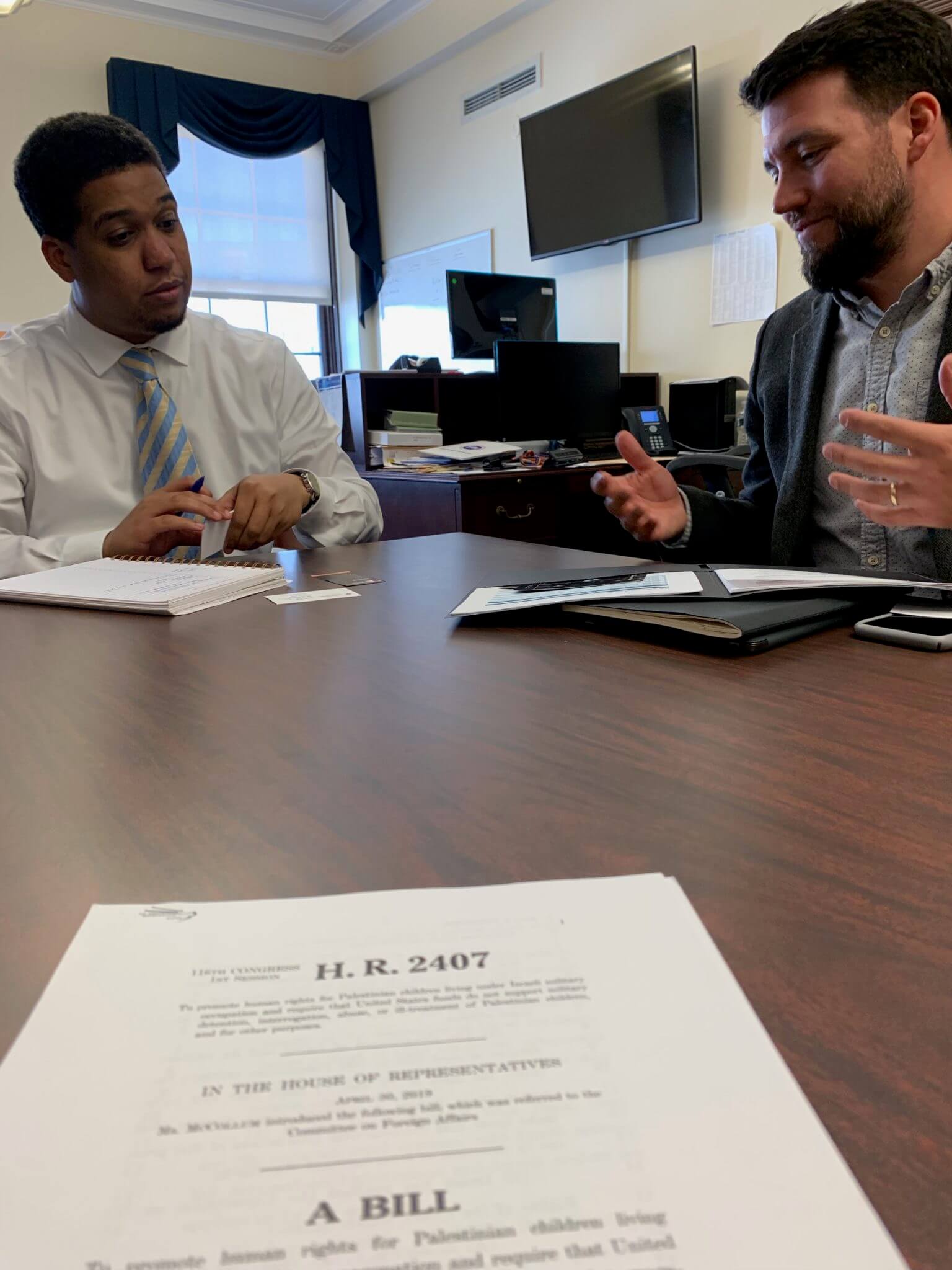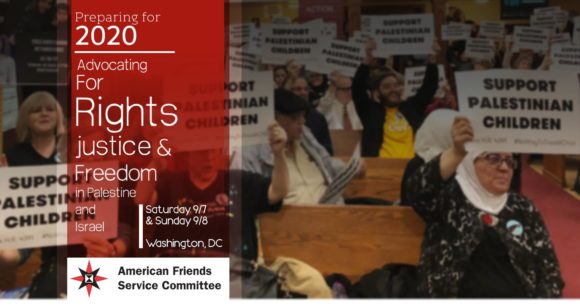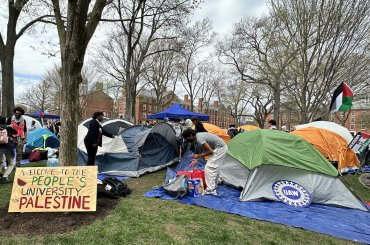This is a transformative moment for Palestine activism in the United States. For decades those of us pushing for freedom, equality, and justice for Palestine have lived in the political wilderness. Advocating to congress has seemed like a lost cause and breaking through dominant narratives about Israeli rights violations seemed like an impossible task.
Between the two of us we have over 50 years of cumulative experience advocating for Palestinian rights, and we can unequivocally say that the last five years have witnessed unprecedented change in the struggle for justice in Palestine.
Political divides in the U.S. on Israel are breaking open as the stark reality of Israeli apartheid becomes impossible to ignore. New generations of activists are building intersectional movements for change and growing support within places where Palestine wasn’t discussed even ten years ago. Politicians like Betty McCollum, Rashida Tlaib, Ilhan Omar, Mark Pocan, and others are taking public stands that were previously unimaginable.
These changes offer opportunities that our movement needs to act on, particularly during the 2020 election cycle.

That is why the American Friends Service Committee is organizing a two day summit in Washington, D.C. on September 7th and 8th title “Preparing for 2020: Advocating for Rights, Justice, and Freedom in Palestine and Israel.”
With each passing year the situation on the ground in Palestine grows worse. Israeli army night raids into Palestinian communities to arrest and detain children without due process and protection is widespread. Home demolitions, forced displacement, and community destruction in Jerusalem, Khan Al-Ahmar, Susiyah, Beit Hanoun and Al-Araqib traumatize Palestinians across the artificial occupation boundaries. The blockade of Gaza has entered its thirteenth year with no end in sight.
U.S. policy, which has always been biased, is also more blatantly one sided and anti-Palestinian than at any point in the past. The moving of the US embassy to Jerusalem, the Kushner-Greenblatt “peace” plan, cuts in funding to UNRWA, changes in US anti-terrorism laws and resulting aid cuts to the PA, all of these actions make life on the ground harder.
These realities should work against hope, but for us, the opposite is the case.
AFSC’s Chicago office launched the No Way to Treat a Child Campaign in 2014 thinking that the time was ripe for a return to politically focused activism. However, we could not have imagined that in only a few years 31 congressional offices would have signed on in support H.R. 4391, the first ever bill calling for respect for Palestinian children’s rights. And support for that work continues to grow with the introduction this year of H.R. 2407, the Promoting human rights for Palestinian children living under Israeli military occupation act.
Advocacy on other issues like ending the Gaza blockade remains more difficult. However, even on these difficult issues there is reason for hope. During a recent round of visits on Capitol Hill, one staffer spoke of her personal support for Boycotts, Divestment and Sanctions (BDS) strategies, another spoke of his time living in Hebron, and a third proudly noted that she was a Student for Justice in Palestine activist during college. Even on issues that members of congress won’t touch, staff are starting to listen, and it is at their level where change begins.
The recent congressional condemnation of BDS is another low point in U.S. politics. At the same time, it is a sign of our growing power, not our weakness. The Israeli government wouldn’t appoint cabinet level positions and Israel supporters wouldn’t spend tens of millions of dollars on a movement that is not having an impact. The wins we’ve seen in the No Way to Treat a Child campaign would not have happened without the movement growth that BDS activists have led in communities around the country. While we lost the recent congressional vote, we’re winning in the courts and on the streets.
At the same time, we can’t be complacent. We have a long way to go to realize real change and life in Palestine is not getting better. We’ve made inroads to power, but more can be done. Join with us and other leaders in our movement in September to talk about building our power and engaging in effective advocacy.
Together we can achieve justice.



We just witnessed an extraordinary phenomenon. Schumer, Rubio, Hoyer, Pelosi, and AIPAC publicly criticizing Israel. I recall nothing like this. How to understand what just happened?
It is my assessment that it unfolded in a way that not reporting it was problematic. Once it was reported other news organizations followed. Because it involved infringing on core American values of freedom of movement and freedom of speech, it COULD NOT BE IGNORED, so even true blue defenders of Israel policies felt compelled to be vocal as not doing so would have been seen as hypocritical, a political sin.
If this is accurate, a campaign for civil rights by Palestinian citizens of Israel could have a powerful impact on the American political system and provide a basis for an awakening. Experience with America’s civil rights movement, largely led by American Jews, and involvement with South Africa’s means the American political system would respond positively and forcibly. Supremacy is a losing hand. Biden recently said that supremacy was antithetical to everything America stands for.
Another ground changing event of late was the letter from 21 Israeli lawmakers to our Congress, essentially emphasizing a two-state solution was more dangerous for Israel than the BDS movement That undercut the safe political position of the great majority of Members of Congress. Now we have Israel declaring a two-state solution dead and equality in a one-state solution an existential threat. Seems another Nakaba or an Apartheid State is on the agenda.
The American political system is prepared to reject either. Let us hope thought is being given to taking advantage of this coming collision with American values. There is no defense against a campaign for equality, especially one utilizing tactics Americans are familiar with, marches and placards. America is ready.